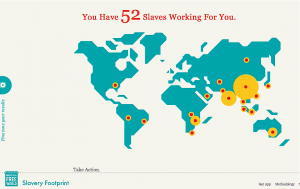emancipation proclamation

Last week’s last minute funding for the Department of Homeland Security has reminded us of how desperately America needs a long-term solution in the area of immigration. The current approach has failed to control the border, has resulted in de facto amnesty for 11-12 million people (the rough equivalent to the population of Ohio), and isn’t meeting our needs in the area of economic development and national security.
A necessary first step is acknowledging that the deportation of 12 million residents would be logistically impossible, as well as morally reprehensible and economically disastrous. The vast majority of these residents have proven themselves to be valuable members of our communities. We can debate the morality of mass deportation, but its logistical impossibility is grounds for moving on to a serious discussion about how to fix the system we have inherited
A little known fact of Lincoln’s legacy is that he explored the option of deporting slaves until he concluded that mass deportation could not solve the problem of slavery. In the weeks preceding the emancipation proclamation, Lincoln was actively pursuing an effort to deport the African-American slaves to Haiti, Honduras, and other counties in Central and South America. Congress actually appropriated $600,000 to assist Lincoln in deporting slaves to these destinations. Lincoln abandoned these plans only when other countries refused to cooperate. He abandoned them out of logistical, not moral necessity. He concluded that it simply could not be done. Then he moved on to legislation that earned him his reputation as the “great emancipator.”

As the nation marks the 150th anniversary of the Emancipation Proclamation, PBS premieres “The Abolitionists,” a three-part series, on Tuesday.
Documentarian Rob Rapley, the writer and director of the series, talked with Religion News Service about the role religion played in the lives of the abolitionists.
The interview has been edited for length and clarity.
Today is a holiday in the District of Columbia, although primarily observed only by the D.C. government, and likely unknown to the rest of the country. But it’s a commemoration worth noting.
One-hundred and fifty years ago, April 16, 1862, President Abraham Lincoln signed the District of Columbia Emancipation Act, freeing more than 3,000 slaves within its borders. It predated the more famous Emancipation Proclamation, which came nearly 10 months later on January 1, 1863.
Yet, while legal slavery is long gone, economic disparities are vast and growing. The income gap is one of the widest in the country, with a white per capita income more than triple that of African-Americans. The poverty rate is 20 percent, 30 percent for children,
Politically, all Washingtonians, regardless of race, remain disenfranchised – we have no elected voting representative in Congress, while Congress retains veto power over our budget. That leads to it using us to enact their pet ideas – repealing a variety of legislation duly passed by our City Council and Mayor.
For D.C. residents, today is a day to remember and celebrate the end of slavery, while renewing the struggle for economic justice and full representation as citizens of the United States.
 The Slavery Footprint campaign launched Thursday (Sept. 22), which also happened to have been the 149th anniversary of the Emancipation Proclamation, with the goal of personalizing "the issue of modern slavery by providing people with an assessment of just how much their lifestyle depends on forced labor -- and the steps they can immediately take to help end it."
The Slavery Footprint campaign launched Thursday (Sept. 22), which also happened to have been the 149th anniversary of the Emancipation Proclamation, with the goal of personalizing "the issue of modern slavery by providing people with an assessment of just how much their lifestyle depends on forced labor -- and the steps they can immediately take to help end it."
By following this LINK I was able to plug in some basic information about myself and my lifestyle -- where do I live, do I own or rent, how many children do I have, have many diamonds/leather shoes/electronic gizmos do I own, what are my eating habits, what's in my medicine cabinet, etc., -- and in just a few minutes received the upsetting news that, according to the Slavery Footprint campaigns diagnostics, 52 slaves "work for me."